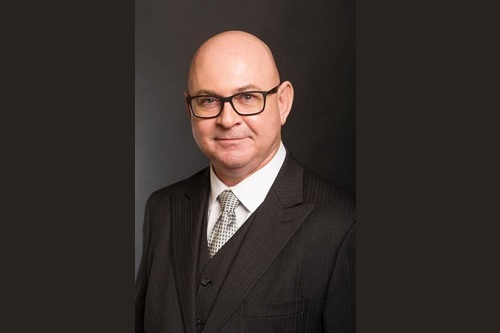Over nearly three decades, Larry Short says, the industry has come a long way — but still has yet to take the next step

In 1988, Larry Short thought his career was all set. A young man in a large corporation, he was looking to move into the Treasury function, where he planned to use all his skills and competence to climb the professional ladder. But he was pulled onto a different professional course by fate — or to be more accurate, an eager branch manager.
“I went to the RBC Dominion Securities Office to get a form on the Canadian Securities Course, and I was intercepted by the branch manager,” Short said. “He was looking for accountants to start working with them, and he wanted someone with initiative. He saw the brochure in my hand, said ‘You’re interested in the course?’ — and offered me the job on the spot.”
Short began working as an investment advisor that very year and found the job very interesting. Like many investment professionals, however, he had to weather some early struggles. “The difficulty at the time — this was in St. John’s, Newfoundland — was that you had to deal with a very tribal culture,” he said. “People tended to deal with whoever they knew, and I wasn’t from the city. That meant I had to spend a lot of time trying to get to know people and networking.”
Aside from that tribal tendency, Short had to contend with a lack of awareness among investors. He’d started out assuming that people at least understood the fundamentals: when to invest, what to invest in, and how much they should invest. But too often, he said, the reality was different.
“We’ve had to spend a lot of time educating clients as to how things work and why they work in a particular way,” Short said. “In cases where we do not spend that upfront time, we’ve found that the person we’re dealing with becomes a customer rather than a client; they’ll tend to shop based on the latest rate of return rather than the long-term rate of return.”
Today, Short is the Senior Partner of ShortFinancial and an executive director and a portfolio manager at ShortFinancial -HollisWealth. He says that his firm’s turnaround and sustained success was driven by a patient approach with clients, which runs parallel to the patience people need in investment. Also critical were his credentials, including a CPA designation, which he has used to help clients realize their financial goals.
“Witnessing the plans unfold to fruition — seeing the kids graduate, seeing your clients retire comfortably — and knowing you had a hand in that, is the most fulfilling part,” he said.
His professional duty of care has also let him pull clients away from less-than-ideal investments. “We’ve had clients ask us why their portfolio includes a certain product, and we’d ask who they talked to when they bought it,” he said. “They’d name a cousin, uncle, aunt, or best friend who had sold them the product, who had been licensed as a salesperson at the time, which they didn’t understand until we helped them dig into it.”
Like many investor advocates, Short feels strongly that the title “advisor” should be replaced with “salesperson” when the person making recommendations has no fiduciary duty toward their client. He’s also staunchly in favour of another push toward investor clarity — specifically involving cost disclosure.
“CRM2 has been a bit of a disappointment because it didn’t disclose all of the fees that investors are paying,” he explained. “As portfolio managers, we have a duty of care to disclose all of our fees, while others are only disclosing some of theirs. That’s the reason why we run into a lot of client confusion. The MFDA has just come out with a statement calling for more complete fee disclosure, which I think would go a long way toward levelling the playing field and ensuring clients are aware of what they’re paying, how much they’re paying, and who gets those fees.”
The prevalence of salespeople — people “who make promises of what they can do as opposed to showing what they’ve done” — and lack of clarity around costs means many investors remain sorely confused. Still, according to Short, the Canadian financial-services industry has come a long way in terms of the professional standards required to enter the field.
“When I started out, firms would be recruiting people from used-car parking lots and people selling ad space in local newspapers,” he said. “Now, there are definitive requirements of university-level education in certain courses, as well as continuing education requirements. The industry certainly has come a long way, but they just need to take the next step, which is to clarify who’s got a fiduciary duty.”
“We’ve reached a critical point between bank-owned firms and the independents,” he continued. “The independent group is shrinking currently, but I believe members of that group will be reasserting themselves in the next number of years. It’s going to be interesting to see who will prevail in the next iteration of our industry, and it may very well be the family-office concept where the genuine advisor becomes the most trusted person on the financial side, integrating accounting, finance, taxation preparation, and estate planning for the entire family.”



